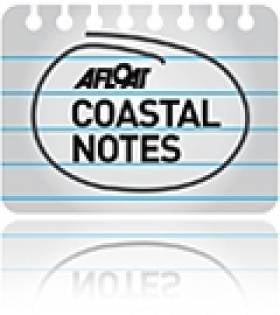Displaying items by tag: Schoolchildren
Schoolchildren in their hundreds are facing disruption as the Strangford Lough ferry in Co. Down is to be affected over the next seven days due to strike action by ferry workers.
The passenger car-ferry service that links the villages of Strangford and Portaferry will not be operational for a week.
This means that commuters also will have to find an alternative method of transport as the service which has two car-ferries, Strangford II and Portaferry II (as above) are out of service.
According to BBC News a school principal said that four of his pupils will be left without any way of getting to school.
Members of the union, Unite, have voted to take strike-action after rejecting a pay offer of £552 extra per year for workers.
Commenting on the strike, Sharon Graham, Unite general secretary said the offer was a "slap in the face" for those responsible for the maintenance of vital public services and infrastructure.
It was on Thursday, at 00:01 (BST) that the strike had begun and is to continue into next week up until 23.59 on 26 April, Wednesday. For updated information visit the TravelWatchNI website here.
More here on the strike at the Strangford Lough Ferry Service which Afloat adds is operated by the Department for Infrastructure (DfI)'s Roads Division South, a Northern Ireland Government Department.
The road distance between Strangford and Portaferry is 46 miles and takes on average 30 minutes to drive. Whereas the ferry route of less than 1 nautical mile takes around 8 minutes to complete.
Schoolkids Urge Stormont to Save NI's Coastline
Hundreds of schoolchildren protested at Stormont last week to call for new laws to protect Northern Ireland's coastal waters, the Belfast Telegraph reports.
The group handed a petition with 4,000 signatures to Environment Minister Alex Attwood urging the introduction of a Marine Bill which would provide special marine conservation zones and restrict harmful maritime activities.
At present, Northern Ireland is the only part of the UK with no legal safeguards for the protection of its coastline.
The Northern Ireland Marine Task Force, which is heading the campaign, says "over-reaching legislation" is needed to preserve the North's marine wildlife and plantlife habitats.
The Belfast Telegraph has more in the story HERE.
Port of Cork Calling all 5th Class Teachers!
School-children will be able to earn about the harbour and how it could be used to harness energy such as wind, wave, gas, electricity and other forms of energy. In addition it will provide an opportunity for the participants to be creative and futuristic about Cork harbour. Children can also look at the importance of green energy in their home and school.
The projects are to be presented in artwork format using paintings, models or photographs. Submitted projects will go on public display in the Cork Customs House for six weeks before the winner is announced in April 2011.
All 5th classes who take part in the Port of Cork Schools Initiative are treated to a boat trip around Cork harbour and each class will receive a certificate of participation. Prizes will be given for the best artwork piece and best photograph.
The overall winner of the Schools Initiative project will receive a tour onboard one of the many cruise liners that are to visit Cork Harbour next summer.
Closing date for entries is 18th March 2011. For further information on this year's schools project and how to get involved you can contact Captain Pat Murphy Tel: 021 4625312 or by Email [email protected] and by logging on to www.portofcork.ie
In addition you can view below a video depicting liners of yesteryear and the cruiseships that visit Cork Harbour, the world's second largest natural harbour.





























































